US Claims Use Of Iranian UAV's In Ukraine By Russia Violates UN Resolution
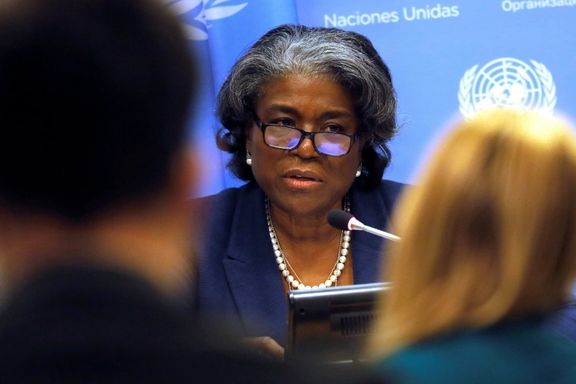
The US Ambassador to the United Nations has expressed concern over the use of Iranian unmanned aerial vehicles (UAVs) by Russia in Ukraine.

The US Ambassador to the United Nations has expressed concern over the use of Iranian unmanned aerial vehicles (UAVs) by Russia in Ukraine.
In a briefing on Tuesday, Linda Thomas-Greenfield stated that it is a “direct violation of UN Resolution 2231”. She revealed that Washington has requested the United Nations conduct an investigation into the matter.
In a statement to Iran International, Ambassador Thomas-Greenfield emphasized the significance of the investigation, highlighting that any other instances of Iranian UAVs being used elsewhere should also be condemned as it constitutes a violation of Resolution 2231.
In June, Iran International wrote of the US government disclosures that Russia, with the assistance of the Islamic Republic, is in the process of establishing a UAV production center approximately 960 kilometers east of Moscow. If completed, the factory is expected to significantly alter the dynamics of the war in Ukraine.
According to analysts from the US Defense Intelligence Agency, the establishment of this factory will substantially increase Russia's stockpile of UAVs compared to the previous supplies received from Iran.
As per the analysis conducted by the US Defense Intelligence Agency, Russia has received a total of 400 Shahed-131 and 136, and Mohajer drones from Iran, depleting Iran's stockpile completely.
While Iranian officials, including Ali Khamenei, have denied supplying arms to Russia for use in the Ukrainian conflict, John Kirby, the spokesman for the National Security Council of the White House, made an announcement in early-June that Russia had acquired hundreds of new drones from Iran.
Kirby reiterated that Iran has also facilitated the establishment of the UAV factory in Russia, enabling them to produce Iranian UAVs as early as next year.

Amid increasing US restrictions on Iraqi banks to curb dollar smuggling to Iran, some politicians have revealed details about how the Tehran smuggles dollars.
Muhammad Nuri Aziz, a member of the Iraqi parliament, said on a television show Monday that Iraqi Prime Minister Mohammed Shia al-Sudani and the country’s central bank are aware of the schemes Iran uses to get hold of US dollars it desperately needs amid US sanctions. The lawmaker noted that the smuggling started during Mustafa Al-Kadhimi's term as prime minister and still continues.
Soran Omar, another member of Iraq’s parliament, told Iran International in an interview on Tuesday that at least 5,000 shell companies have been registered to facilitate the dollar smuggling network.
“It is true that in the cabinet of Mohammad Shia al-Sudani, there have been more efforts and preventive measures to curb dollar smuggling to Iran, showing better performance compared to previous governments. However, this does not mean a real halt," he said. “On the contrary, when one measure is adopted, another loophole for dollar smuggling is opened.”
Omar added that “unfortunately, most private banks in Iraq, which are backed by corrupt officials, are the main cause of dollar smuggling.” “It is quite clear that each of these banks are affiliated with which individuals,” he highlighted, suggesting that there is no resolve in the government to stop the smuggling.
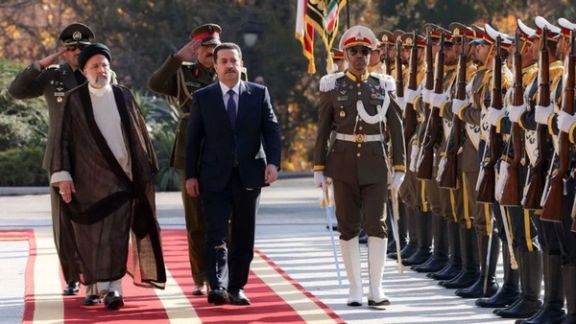
He warned that considering the new US measures against Iraqi banks to stop the flow of money to Iran, new channels may open to keep the smuggling ongoing.
A source with the Iraqi government told Iran International that following the recent restrictions by the US, a portion of the smuggling is being carried out through shell companies, electronic travel cards, online shops, exchange offices, and even suitcases.
According to the source, some people have created hundreds of electronic cards with different names and used them to buy $20,000 to $30,000 from Iraqi banks. Then, they cash the money in another country and transfer it to Iran.
"Some people have managed to smuggle more than one million dollars singlehandedly," the informed source said.
Reports about the transfer of $165 million to Iran within less than a month by just one exchange office led authorities to discover dozens of similar cases by other exchange offices.
Jamal Coujar, another Iraqi lawmaker, told Iran International that if the administration of Shia al-Sudani and the Central Bank do not take serious measures to prevent money laundering, fresh rounds of US sanctions will hit Iraqi banks.
The credibility of the Iraqi banking system has been tarnished due to the Islamic Republic's influence, and US sanctions have tightened their grip on Baghdad because evidently all Iraqi banks have had interactions with the Islamic Republic.
The only commercial gateway for exports and imports with Iran is Iraq, whose financial dealings with the regime are not properly supervised, Coujar said, adding that “billions of dollars have been transferred to Iran,” but authorities have remained silent. “It has become evident that all Iraqi banks have had interactions with Iran, and this situation has only benefited Iran and harmed Iraq,” he noted.
Last week, 14 Iraqi private banks sanctioned by Washington over helping to siphon US dollars to Iran said they were ready to challenge the measures and face audits and called on Iraqi authorities to provide assistance.
The US barred the Iraqi banks from conducting dollar transactions as part of a wider crackdown on dollar smuggling to Iran. The latest sanctions, along with earlier ones, have left nearly a third of Iraq's 72 banks blacklisted, two Iraqi central bank officials said.
The dinar tailspin against the dollar has worsened since the New York Federal Reserve imposed tighter controls on international dollar transactions by commercial Iraqi banks in November to halt the illegal siphoning of dollars to Iran.
Under curbs that took effect in January, Iraqi banks were required to use an online platform to reveal their transaction details. But most private banks have not registered on the platform and resorted to informal black markets in Baghdad to buy dollars.
Iran International revealed in May that an aide to former IRGC’s Quds force commander Qassem Soleimani, is a key figure in money laundering for Tehran. Iran International also reported some details about the inner workings of a Quds force unit tasked with smuggling money from Iraq to Iran, proving that the Islamic Republic’s embassy in Iraq is also involved in money laundering operations aimed at funneling revenues from oil and gas exports back to Iran.
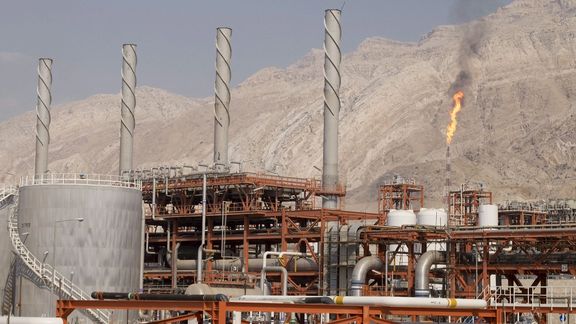
Amid reports of a rise in Iran’s oil exports to China, the regime’s former envoy in Beijing has shed light on Tehran’s mechanisms to collect the revenues.
Mohammad-Hossein Malaek, who served as Tehran’s envoy for four years under former president Mohammad Khatami, told the Iranian Labour News Agency on Tuesday that China’s purchase of Iranian oil never stopped no matter the status of US and international sanctions on the Islamic Republic.
“China has a principled and consistent approach to its relations with Iran, and for about 10 to 15 years, both when Iran was under sanctions and when they were removed, China has been importing an average of 600,000 barrels of oil per day from Iran,” he said.
However, he explained that Beijing was supposed to open credit lines for Iran, but it never did due to the sanctions. Malaek did not elaborate if these “low-cost credits” were supposed to be earmarked for Chinese products or the regime would have been able to use them on international markets.
No matter how many buyers or how much trade Iran manages to secure for its exports, Iran faces serious obstacles in bringing in the revenues and money transfers due to banking sanctions, the former envoy highlighted.
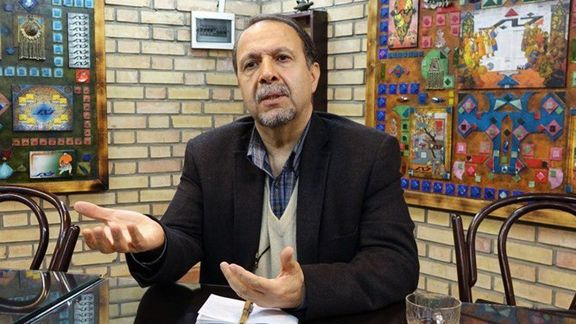
His remarks came as head of the Iran-China friendship association Allaedin Boroujerdi said Monday, “Necessary agreements have been made between the central banks of the two countries, and we do not have the problem of blocking Iran's money and assets in China, like we have in South Korea.”
While China has a diversified oil supply portfolio that has seen Iran contributing over one million barrels per day in some periods, the lion’s share of China’s daily import of 10 million barrels are from Russia and Saudi Arabia.
He did not explain how exactly Iran is receiving money from China but there are several known methods that have been used in the past, including a barter system and China’s investment in Iran’s development projects. “There is an annual exchange of $15-16 billion worth of goods with the Chinese, some through banking channels and some through barter," Malaek said.
In 2020, Iran and China quietly drafted a sweeping economic and security partnership that would potentially clear the way for billions of dollars of Chinese investments in Iran’s energy and other sectors, undercutting the Donald Trump White House efforts to isolate the regime over its nuclear and military ambitions. Then-foreign-minister Mohammad Javad Zarif and his Chinese counterpart Wang Yi signed the controversial 25-year deal at a ceremony at the Iranian Foreign Ministry in Tehran in March 2021. The deal was first proposed by Iran's Supreme Leader Ali Khamenei during President Xi Jinping’s visit to Tehran in 2016.
The pact has been controversial in Iran because its details have never been disclosed. According to a copy of the draft obtained by The New York Times, the 18-page agreement detailed $400 billion of Chinese investments in banking, telecommunications, ports, railways and dozens of other projects. In exchange, China would receive a regular and heavily discounted supply of Iranian oil for the following 25 years.
Although Iran has not revealed the details of the agreement with China and what it will entail in political, economic and military terms, it has caused resentment from Iranians who claim the Islamic Republic is "selling out the country and its people" to China and Russia.
While oil has been trading at around 75-82 dollars in the past several months, Iran International reported in December that Tehran provides huge discounts to China, charging as little as $37 per barrel. A report by The Wall Street Journal in July said Iran is exporting the highest amount of crude oil in five years, but it offers discounts of up to $30 per barrel.
Kpler, a data and analytics firm, said in its latest report last week that Iran’s oil shipments to China have more than tripled over the past three years despite the US sanctions. Based on the data, Iranian crude exports to its major trade partner have been hovering around one million barrels per day in 2023, up from roughly 325,000 bpd in 2020 and just 160,000 bpd in August 2019, in the wake of tightened US sanctions.
Also in January, the US Energy Information Administration (EIA) put Iran’s average oil production in 2022 at 2.54 million bpd. According to energy consultant SVB International earlier this year, Iran’s crude exports in December averaged 1.137 million barrels per day, up 42,000 bpd from November and the highest 2022 figure SVB has reported based on earlier estimates.
Iran needs around $50 billion from oil exports to balance its flailing budget, but estimates say actual annual proceeds are around $25 billion. Another reason for Iran’s oil revenues being probably less than $25 billion is the costs involved in illicit shipments to evade sanctions, and losing money in trying to repatriate the money in hard currencies. Iran’s banking system is also under US sanctions and any oil revenues are laundered through intermediaries.
The main question that remains unanswered is how all these oil revenues are spent when inflation is still soaring, national currency is on a nosedive and Iranians are getting poorer every day with no prospect of bouncing back in sight.
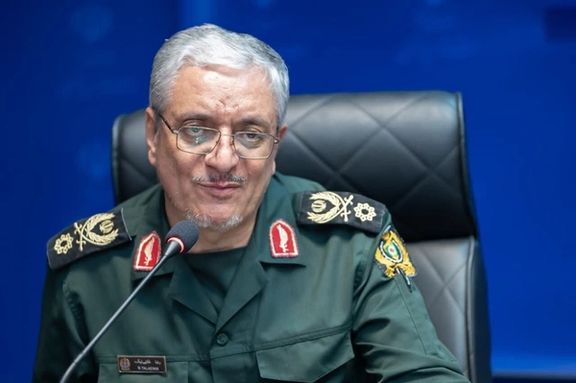
An Iranian defense ministry official has issued a threat to the US amidst its rising military presence in the Persian Gulf.
Referring to Iran's latest long-range missile, which has a range of 1,000 kilometers, Reza Talaei-Nik, the Spokesman of the Ministry of Defense, said: "The enemies should move away from the country's coasts within the range of the Abu Mahdi missile, and those who intend to create insecurity in the region should change their mind."
Thousands of Marines backed by advanced US fighter jets and warships are building up a greater presence in the Persian Gulf in the face of Iran's harassment of commercial vessels in the Persian Gulf.
The dispatch of the troop-and- the USS Bataan expeditionary unit to the region, alongside stealth F-35 fighters and other warplanes, has put the regime on the back foot.
Talaei-Nik warned that those who want to pose a threat should withdraw beyond the 1000-kilometer range of Abu Mahdi sea cruise missiles that "can evade radar."
The Abu Mahdi missile, made in Iran, can reach the entire Persian Gulf Sea, the Sea of Oman, and a portion of the Indian Ocean, according to Talaei-Nik.
Earlier Iran’s Defense Minister, Mohammad Reza Ashtiani hailed the addition of the Abu Mahdi missile to Iran's naval fleet claiming that the missile system's advanced artificial intelligence capabilities enables it to adeptly evade radar systems.
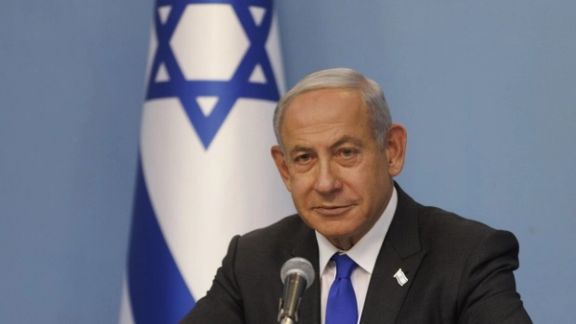
Israeli Prime Minister Benjamin Netanyahu reaffirmed Israel's Iran strategy despite Biden's recent nuclear deal efforts.
In an interview with Newsmax on Monday, he reiterated his policy on Iran, its most dangerous enemy in the Middle East, and said he will not be deterred by the Biden administration's efforts to restart a nuclear deal with Iran.
"Israel will do what it needs to do to defend itself by itself against the threat of Iran to annihilate it with nuclear weapons," Netanyahu told Rob Schmitt Tonight.
The Biden administration has been striving to bring the United States back into the Joint Comprehensive Plan of Action (JCPOA), a deal that was previously abandoned under the Trump administration. Talks are also said to be addressing the release of some of the US citizens detained in Iran and unfreezing some Iranian assets. It has been met with fierce opposition on both sides of Congress and since the latest talks began in June, maritime tensions continue between the two arch-enemies in the Persian Gulf.
Netanyahu said of the ongoing US talks: "I think that any deal with Iran that doesn't set back Iran's nuclear infrastructure is basically not worth it because it means nothing ... They basically take what you give them, but they don't set back. They don't roll back the capacity to produce nuclear weapons or the components of nuclear weapons. So, you really get nothing for it. And my view hasn't changed."
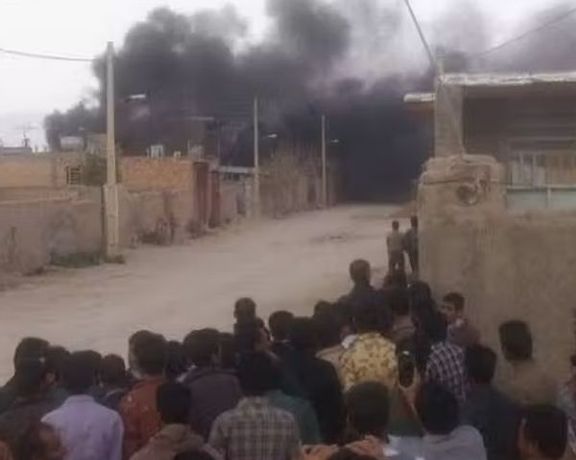
The IRGC surrounded a village in Iran’s West Azarbaijan province after clashes erupted between civilians and security forces.
Violence broke out after residents of Agh-Darreh village in Takab had protested the arrest of family members in front of the governorate of Takab city. In what is believed to have been a case of excessive force, police and security forces turned violent, causing the IRGC to send troops to surround the village.
Hengaw Human Rights Organization reported that the situation escalated with over 50 Kurdish citizens being arrested and more than 10 people sustaining injuries. Furthermore, dozens of other citizens have sought refuge in the surrounding mountains, fearing arrest.
The majority of Iran's 10 million Kurds live in the western parts of the country, which has been subject to consistent suppression from security forces in the wake of Kurdish-Iranian Mahsa Amini's death in morality police custody. It has been the scene of numerous violent protests and even more brutal crackdowns by the regime with hundreds believed to have been killed in state-sanctioned violence.
The area's residents were also protesting a lack of jobs at the local gold mine, with the villagers among some of Iran's poorest citizens. Despite promises of employment from provincial authorities, the situation remains unresolved and the economic situation worsening.